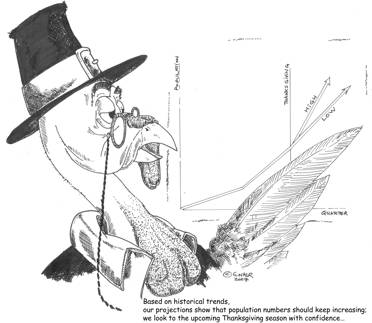I do not want to offend anyone by this post. I understand that taking the decision to invest significant amounts of money in an asset like residential property often requires a lot of hard work and fortitude. I am merely trying to offer what I think may be some constructive comments.
In simple terms, in economics, the fallacy of composition refers to the logical mistake of assuming that what applies to the individual will also apply to the group. For example if you are at a football game and you stand up to get a better view, and if most people at the game do not follow your example, you will get a better view. However, if everyone at the game stands up to get a better view very few people will get a better view.
So what has this got to do with property investing? A lot I think.
I have read a number of posts on this forum where people have said that if the property market takes a modest turn for the worse they can always sell one or perhaps two of their investment properties to allow them to get through any downturn. It is true that if only a relatively small number of property investors sell one or two of their properties they will probably be able to sell them at a relatively small discount from the current market price (if not at a higher price). However, if a lot of property investors do the same thing it is likely that the supply of properties for sale will increase dramatically and the price they receive for these properties will likely fall dramatically; thus, the fallacy.
In summary, I just want to caution property investors on this forum from thinking that if they do have to sell one or more of their properties it will probably be, at worst, only a small discount from the current price. There is a significant risk that if a lot of property investors decide to sell one or more of their investment properties at the same time the price they receive for these properties may be significantly lower than they expected.
What do you guys think?
In simple terms, in economics, the fallacy of composition refers to the logical mistake of assuming that what applies to the individual will also apply to the group. For example if you are at a football game and you stand up to get a better view, and if most people at the game do not follow your example, you will get a better view. However, if everyone at the game stands up to get a better view very few people will get a better view.
So what has this got to do with property investing? A lot I think.
I have read a number of posts on this forum where people have said that if the property market takes a modest turn for the worse they can always sell one or perhaps two of their investment properties to allow them to get through any downturn. It is true that if only a relatively small number of property investors sell one or two of their properties they will probably be able to sell them at a relatively small discount from the current market price (if not at a higher price). However, if a lot of property investors do the same thing it is likely that the supply of properties for sale will increase dramatically and the price they receive for these properties will likely fall dramatically; thus, the fallacy.
In summary, I just want to caution property investors on this forum from thinking that if they do have to sell one or more of their properties it will probably be, at worst, only a small discount from the current price. There is a significant risk that if a lot of property investors decide to sell one or more of their investment properties at the same time the price they receive for these properties may be significantly lower than they expected.
What do you guys think?

